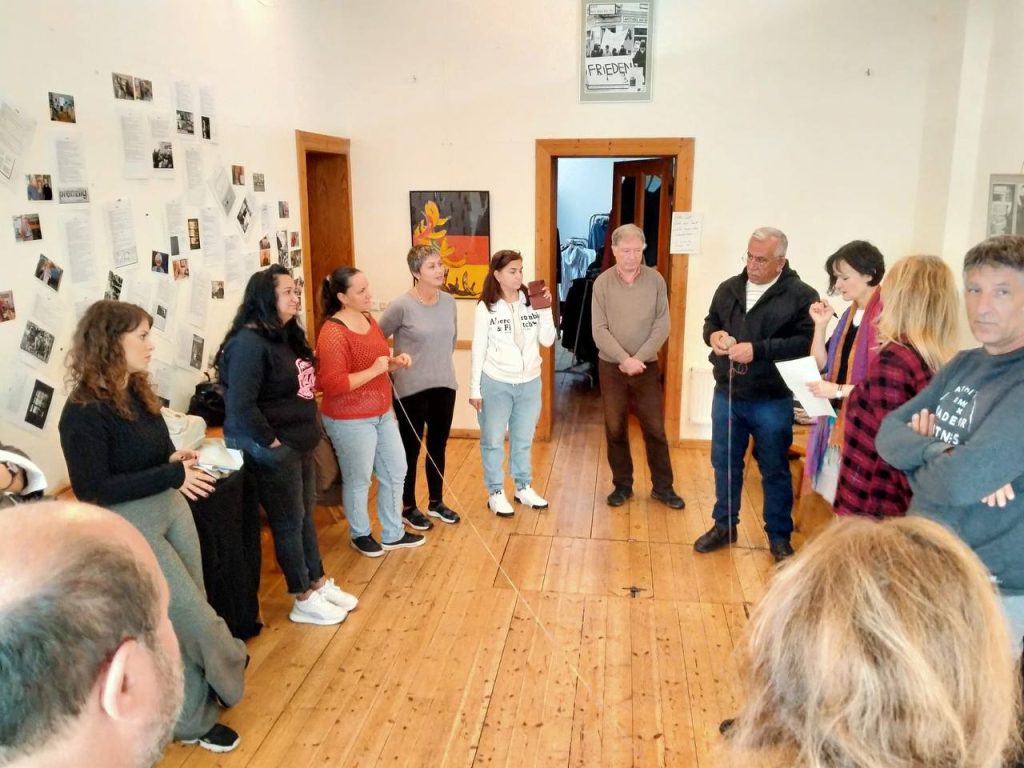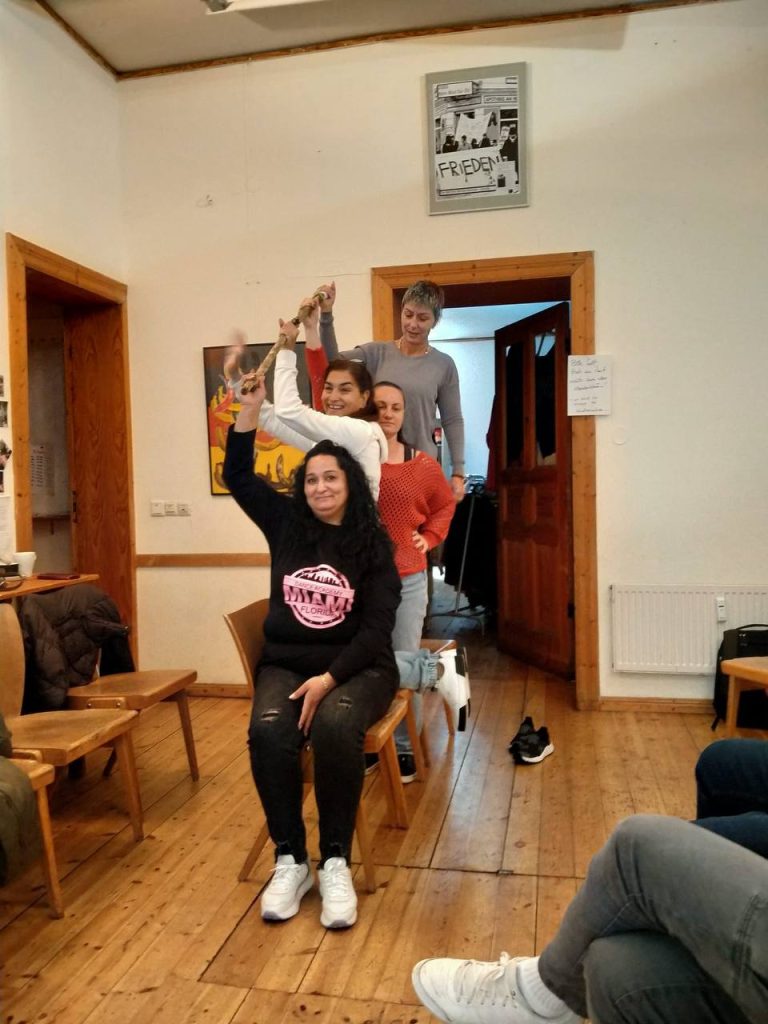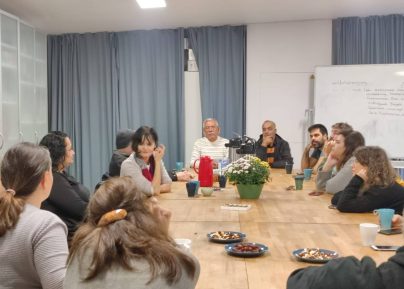weltgewandt e.V. organised a transnational encounter with 14 learners and educators from Bulgaria, Greece and Italy from 25-28 October 2023. The topic was individual and societal dimensions of energy and access to resources. The programme was diverse; it enabled learning at authentic places in Berlin.
The participants were staff members and learners in projects of a foundation in the Roma community “Fakulteta” in Sofia, which is the largest in Bulgaria with an estimated population of at least 40,000. Also present were activists from “Corviale Domani”, a cultural and educational institution run by residents of the one-kilometre-long “snake building” on the outskirts of Rome. From Athens came learners and employees of an educational institution that realises projects with so-called disadvantaged people.



The participants from weltgewandt e.V. and the guests met at a district centre in Berlin-Mitte and talked about what concerns them “here and now” in relation to the keywords “climate change” and “ecological problems”. Thus attuned, the group visited the Futurium, a museum that focuses on future concepts with reference to the possibilities of science and technology. After the opening of the joint exhibition at three locations in Marzahn-Nord, there was time the next day to visit a special garden project: at the DRK-Nordost, people from the neighbourhood, be they old or new Berliners, can create their own raised bed and thus experience a little nature in the city and get together with others. Mahmoud Ishmawi, Sakr Haj Omar and Mohammed Sabagh led the group around the once inhospitable and now flourishing site. They proudly showed all they had built, worked on and done: erecting small, sturdy wooden houses, creating flower beds, re-cultivating a small pond, laying flagstones and coaxing some exotic plants from their own flower beds. The colleagues were impressed and willing to adopt some of the ideas in their contexts.
The magic and energy of a city garden was then contrasted with input and discussion on the connection between resources (which ones?, when?), industrial capitalism of the last 200 years and the power of energy corporates. Is economic growth compulsory? For what reason? Why were there significantly more trams in cities in the USA and Europe until the end of the Second World War than today? What stood in the way of the spread of the inventions of Mária Telkes, who had already designed the first solar house in 1947 and developed a solar oven? Answers are given in the arte film “The Earth Destroyers“.
After the various inspirations, it was then the turn of the participants themselves. They were asked to paint their visions of a social-ecological, democratic society. For that, they were invited to go to “Phantasia” or, alternatively, to paradise or the land of their dreams. What is life like there? What rules apply? How is life together organised? Who is in charge? How is one’s own living space furnished? What energies can be released in this “phantasia”?
In small groups they dared to experiment, exchanged ideas and created a body image or a mini theatre scene together. This was not an easy exercise for some. But reflecting on what is good sharpens the view of one’s own standards. And it opens the door for ideas.
The presentation of the results turned out to be quite lively and triggered some joy in addition to the thoughtful. For example, one group organised a fashion show in which the participants expressed their hopes for a better world in terms of “freedom”, “nature-oriented society”, “no Anthropocene”, “no borders”, “no war”, “happiness” and others. Others had chosen for “Phantasia” a ship made entirely of natural materials and on which farming is exclusively “green”; still others symbolised a greater openness of people to their environment beyond their own front door, their ability to overcome hurdles or the transition from a few large companies to many small businesses, for example in the energy sector.
“Everything was very interesting. “I really liked the inclusion of migrants, the peer education.” “I had a worse image of Marzahn. In reality it was much better than expected.” “It was great that we were in such different places.” “I was able to travel for the first time. I met very nice people.” “The public transport was great. No traffic jams. You could get everywhere.” “It was a pleasure to exchange ideas.” “Thank you for all the suggestions.” This and more is what participants said at the end of the four days.



The workshop took place in the framework of the project “Climate + Change through Democracy and Inclusion“. It is funded by the Erasmus+ programme of the European Union.


